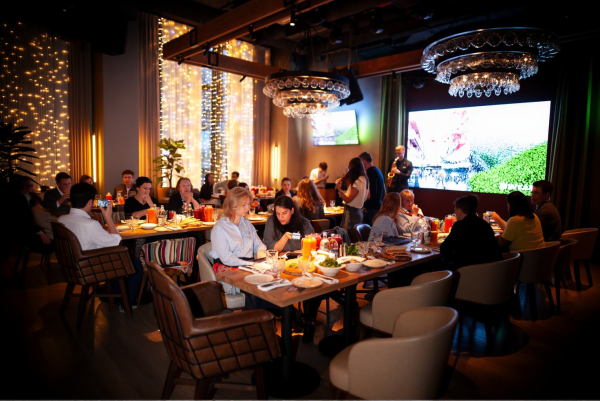The sellers of premium apartments invest in street retail properties.
In Kalinka Group - a leading consulting and real estate company in the luxury property market, it has been calculated that more than 15% of luxury apartment sellers invest the proceeds from the transaction in street retail properties. According to the company's specialists, commercial real estate attracts customers with high rental business profitability, 2-3 times higher than residential rental income.
Street retail is a market that transforms under any economic situation. Currently, there is demand for all types of rental businesses in this segment. "If the owner of luxury real estate had two or three apartments as a backup, the crisis encouraged them to dispose of their assets more effectively," comments Ekaterina Rumyantseva, Chair of the Board of Directors of Kalinka Group. "According to our observations, during the period from January to June of this year, more than 15% of luxury apartment sellers invested in street retail properties."
This is a fairly understandable format of real estate, which in most parameters is similar to an apartment, but in many ways is much more convenient to manage. Thus, the premises are often purchased by individuals, but can be leased by individual entrepreneurs. Thanks to a simplified taxation system, this allows private investors to reduce their tax burden from 13% to 6%.
"Street retail properties require the least amount of time investment from the investor," says Egor Levchenko, Director of Commercial Real Estate at Kalinka Group. "This includes management at all stages of the investment cycle, starting from the conclusion of the deal. If the rental market for residential real estate has a yield level of 3-5% per year, then in street retail it ranges from 9% to 13%." Thus, the payback period for investments in this segment is 7-10 years. Additionally, in an apartment, one must constantly maintain the appropriate finish condition, and the property quickly depreciates. "In street retail, the tenant is directly responsible for this," explains Egor Levchenko. "There are practically no operating expenses for the owner, and unlike the residential segment, the tenant pays for repairs. At the same time, the relationship between the tenant and the landlord in the street retail segment is long-term: the standard contract term is 3-10 years, and the rent rate is indexed. The size of the indexation depends on the contract currency and the specialization of the tenant but can average from 3% to 10% per year."
According to Kalinka Group, the entry price for the professional street retail market with guaranteed profitability starts from 20 million rubles. "In this case, one can expect a return of 10% per year," claims Egor Levchenko. "With the rental income, the investor will have the opportunity to rent two apartments of the same value (20 million rubles each) in a business-class building with finishing."
If before, buyers focused on properties near metro stations in the center of Moscow, now central streets have become less popular, partly due to parking restrictions. As a result, demand has shifted towards residential areas of the city. The main tenants of such properties are discount stores and stores offering related goods and services. Additionally, potential investors in the market have options with either a ready tenant or vacant premises.
Read also
Stay up to date with the latest news
We promise to send only interesting and important articles.













